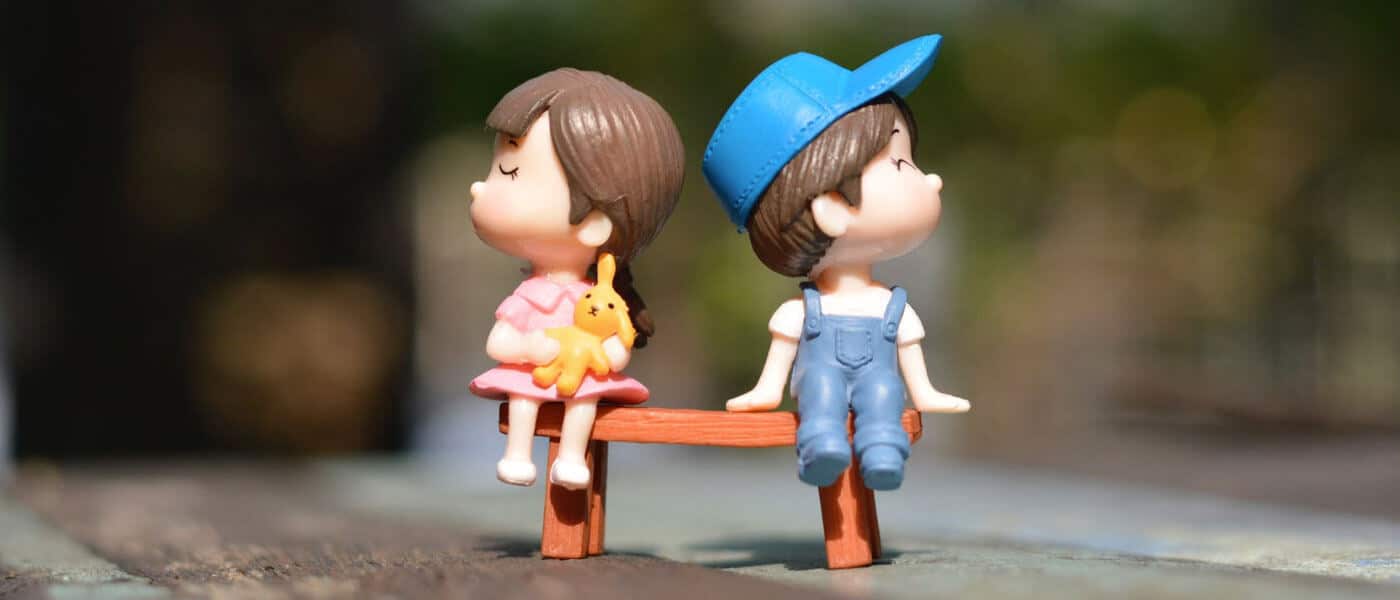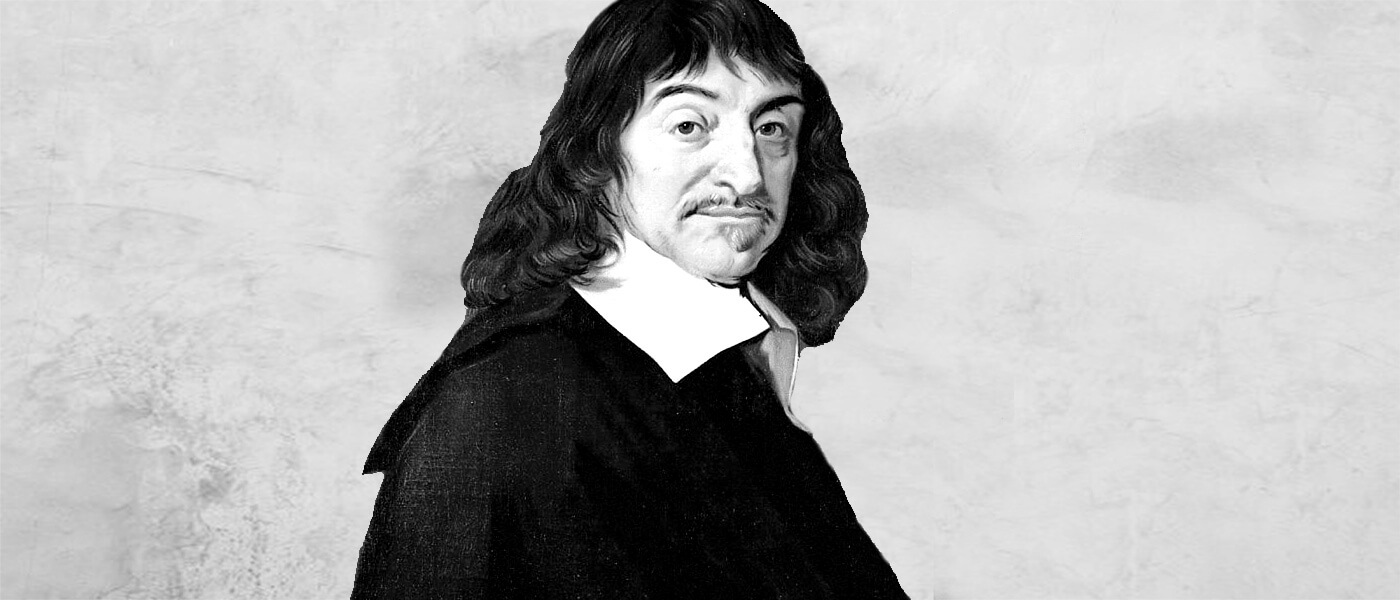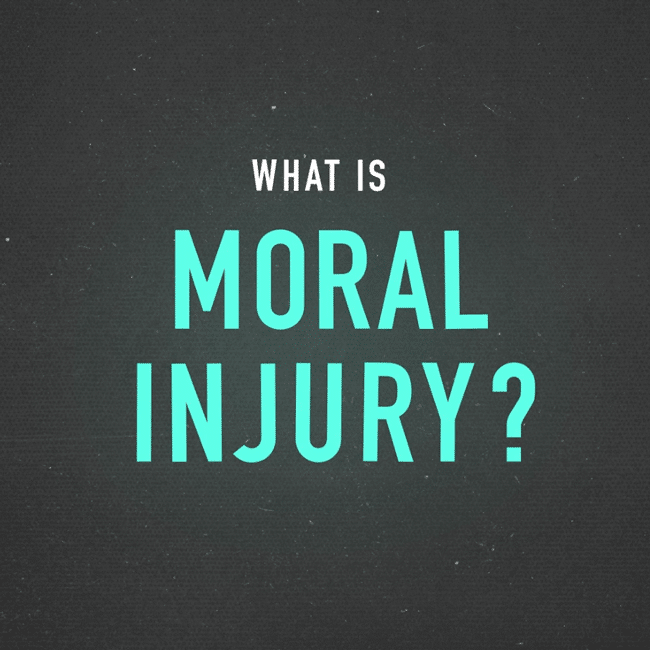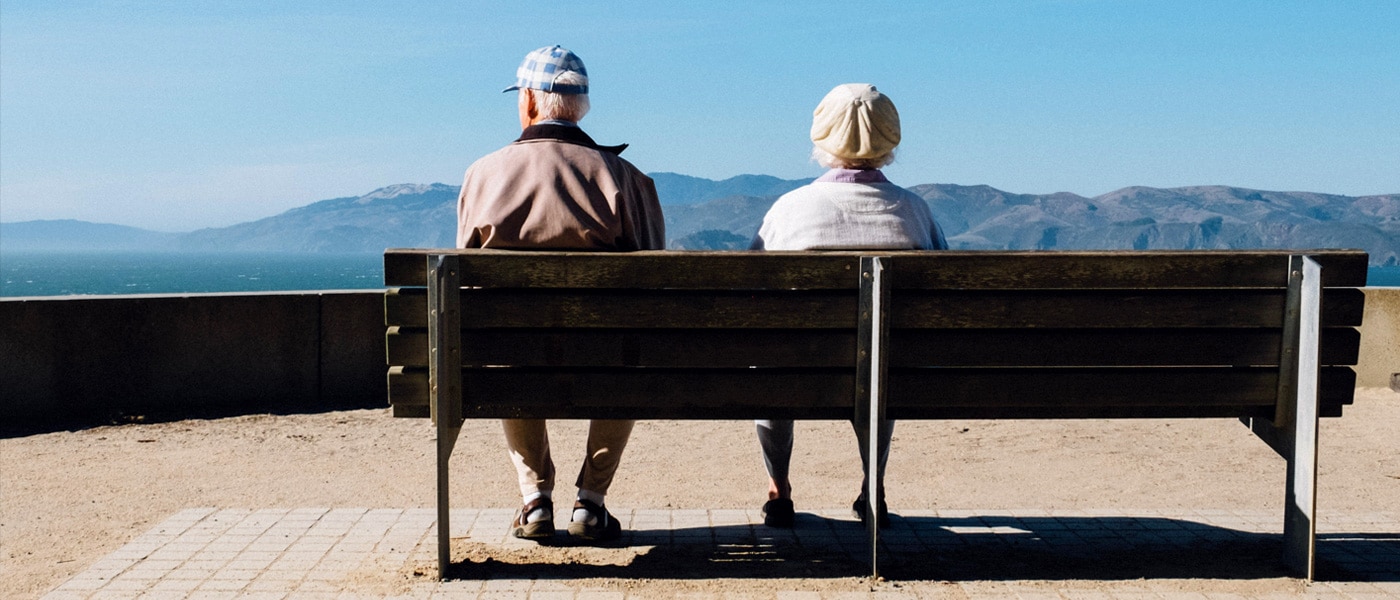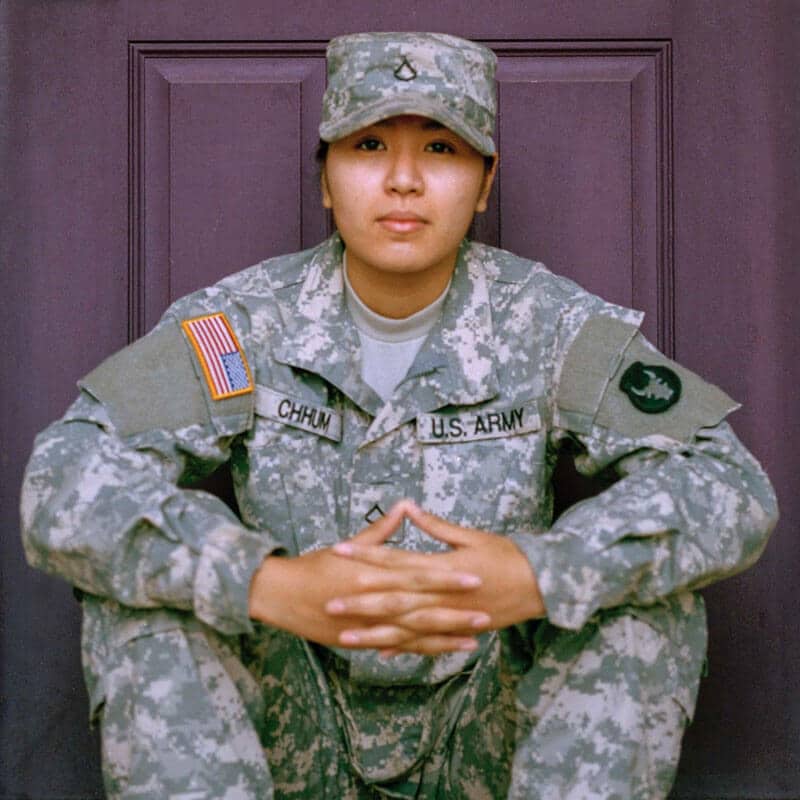To live well, make peace with death

To live well, make peace with death
Opinion + AnalysisHealth + WellbeingRelationships
BY Matthew Beard The Ethics Centre 14 JAN 2016
“What do we say to the god of death?” swordsman Syrio Forel asks Arya Stark in George R.R. Martin’s Game of Thrones (and in HBO’s TV series). “Not today.”
This short refrain marks the beginning of a sustained exploration of humanity’s relationship with death told through Arya’s experiences. She becomes a murderer and later, in ‘The House of the Undying’ where death is seen as a god to be worshipped, an assassin and servant to that god.
Watching Arya’s story unfold, it seemed to me she’d never forgotten her former (you guessed it, now dead) teacher’s lesson – the only response to death is denial.
According to many thinkers, this isn’t surprising at all. Arya isn’t alone in running from death. Denying the reality of human mortality is a near universal behaviour. In The Antidote: Happiness for people who can’t stand positive thinking, Oliver Burkeman considers the writing of Ernest Becker, whose arguments Burkeman surmises. “Your life is one relentless attempt to avoid [thinking about death] – a struggle so elemental that … for much of the time you succeed.”
Becker believed to avoid confronting our mortality people invest in “immortality projects”. Art, family, business, nations, war, charity, and so on… Immortality projects aim to overcome physical death by ensuring our continued existence through symbols or ideas.
The late David Bowie promised “We can be heroes”, and that’s precisely Becker’s point. Immortality projects are attempts to become heroes, thereby avoiding the emptiness of death.
But research suggests the common instinct to avoid thinking about our mortality might be worth pushing against. In a paper entitled ‘Deliver us from Evil’, researchers found that mortality avoidance can cloud our judgements about life and death issues, leading to unreflective decisions in high-stakes situations.
The study asked two groups of people to undertake a long and generally dull questionnaire and then to read a short essay and tell researchers how strongly they agreed with it. The essay was a strong statement of support for the controversial policies of the Bush administration’s invasion of Iraq. It included lines like “It annoys me when I hear other people complain that President Bush is using his war against terrorism as a cover for instituting policies that, in the long run, will be detrimental to this country … Mr. Bush has been a source of strength and inspiration to us all. God bless him and God bless America”.
The only difference between the two groups was that one questionnaire forced subjects to consider their own mortality. The “mortality salience” group were asked to “briefly describe the emotions that the thought of your own death arouses in you” and to “jot down, as specifically as you can, what you think will happen to you as you physically die, and once you are physically dead”.
For some, even the idea of answering these questions might feel uncomfortable, as it did for the subjects in the experiment. Researchers found the “mortality salient” subjects invested more strongly in the nearest immortality project to hand – the war in Iraq. Subjects from the mortality salience group agreed strongly with the essay. By contrast, the control group generally disagreed with the essay’s sentiments.
When we’re forced to confront our own mortality, our default reaction may not be the product of rational thinking but an impulsive rejection of death.
This tells us something important – especially in a time when we are continually confronted with the threat and reality of terrorism and domestic violence nearly every day. When we’re forced to confront our own mortality our default reaction may not be the product of rational thinking but an impulsive rejection of death. The researchers argued similarly:
The fact that reminders of death and the events of 9/11 enhanced support for President Bush in the present studies may not bode well for the philosophical democratic ideal that political preferences are the result of rational choice based on an informed understanding of the relevant issues.
This poses a challenge for ethical behaviour – some of the most serious ethical decisions people face are made when they are confronted with death. Most obviously these include healthcare and political decisions with serious implications for the general populous. Is it possible to overcome mortality avoidance and make decisions based on moral values and principles instead?
Researchers weren’t optimistic on this point, but Burkeman indirectly suggests a way forward. His interest lay in whether thinking about death might enable us to live a happier life. He presents evidence that regular contemplation of death can enable us to avoid horror and shock when it ultimately arrives. “The more you become aware of life’s finitude, the more you will cherish it and the less likely you will be to fritter it away on distraction”.
The same might be true for our mortality avoidance in decision making. If regular acquaintance with death can remove some of its shocking strangeness, perhaps we will be less likely to invest in immortality projects as a way to distract ourselves from its reality. By making our peace with the fact we are all going to die, we will be less likely to make decisions based in our fear of death. If ‘Deliver us from Evil’ is any indication, this might also save lives in the long run by ensuring serious decisions are made reasonably and not from fear.
Plus, doing so might also make you happier.
Ethics in your inbox.
Get the latest inspiration, intelligence, events & more.
By signing up you agree to our privacy policy
You might be interested in…
Opinion + Analysis
Politics + Human Rights, Relationships, Science + Technology
Parent planning – we shouldn’t be allowed to choose our children’s sex
Opinion + Analysis
Health + Wellbeing, Business + Leadership
The ethical dilemma of the 4-day work week
Opinion + Analysis
Health + Wellbeing, Relationships
LGBT…Z? The limits of ‘inclusiveness’ in the alphabet rainbow
Explainer
Relationships
Ethics Explainer: Conservatism
BY Matthew Beard
Matt is a moral philosopher with a background in applied and military ethics. In 2016, Matt won the Australasian Association of Philosophy prize for media engagement. Formerly a fellow at The Ethics Centre, Matt is currently host on ABC’s Short & Curly podcast and the Vincent Fairfax Fellowship Program Director.
BY The Ethics Centre
The Ethics Centre is a not-for-profit organisation developing innovative programs, services and experiences, designed to bring ethics to the centre of professional and personal life.
James Hird In Conversation Q&A

James Hird In Conversation Q&A
Opinion + AnalysisHealth + WellbeingRelationships
BY Aisyah Shah Idil 8 JAN 2016
With the players being unable to contact people such as the Club or for those at the Bulldogs or Port Adelaide, is there a concern as the season moves on how those players can be supported, and the things the AFL and the Clubs can put in place to help them to get through the year?
HIRD: Yeah, I’m not close enough to it anymore to know exactly what those processes are, but I know that the Clubs and the AFL Players Association has processes in place – I just can’t tell you what they are. I think the 34 players and their families will be a source of support for each other as well.
One of the difficulties is that as a player you become very institutionalised in your lifestyle. You get up at seven, you go to the Club, you train, you go home at four. You do that day after day. You’re told what to eat, you’re told what to drink, you’re told where to train, how to sleep … I think that lack of routine will be hard for them to work through.
HOLMES: The structural issue of having a High Performance team over here, independent from the Senior Coach, that doesn’t feel like a system that would go forward.
HIRD: I actually disagree with that. I don’t think a Senior Coach should be responsible for those people at all. My knowledge of medicine and of the medical department is tiny – I’m not a doctor. I’m not trying to absolve myself from what happened, I’m just saying I would never … I wouldn’t think in the future coaches would be in charge of those things at all.
You need experts and you need a Head of Football who is really a “dot I’s and cross the T’s”, process-driven person – whose got some charisma to lead. But the most important job for the coach now in the club is to be so close to his players that they play for him, to set the agenda for the game plan and is to get his coaches coaching the way he wants to. And then he’s the public face.
That’s a big job in terms of time commitment so to look after the nitty-gritty intricacies of, let’s say, the supplement program now… Other coaches would say, they don’t know what their players are given and they actually don’t want to know what their players are given because then that leads to the point where if you do know then you have to go and research it. John Worsfold at Essendon has got no time to go and research the latest supplement. That needs to be done by someone else.
HOLMES: Firstly, did any of the players ever express concern about the program – that’s the first question. And the second question is: with the benefit of hindsight is there something in particular that stands out as where you perhaps could have twigged to something going wrong.
HIRD: I think one of the things I wish I had have done better was … Stephen Dank proved A0964 was the drug or supplement I thought was the big issue. He wasn’t allowed to give that so he went and got the WADA documentation for Bruce Reid to approve and tick it off. And Bruce Reid eventually did approve it and tick it off.
He [Dank] waved a bit of paper under my nose one day and said “oh, I’ve got the approval”. Now I wish, instead of waving it under my nose and saying “oh I saw the WADA approval document”, I wish I’d got that document, looked at it, checked its authenticity … because there is a suggestion that document is not authentic. I think if we’d discovered then that document wasn’t authentic or wasn’t what they thought it was that would have set off a number of alarm bells that would have said “that’s not what we’re doing.”
And I think I would have been stronger in June or July in that meeting with David Evans and Ian Robson and said “Well, if he’s still there, we’re not working”. That’s how strong we had to be. We were very strong but we probably should have said “well if they’re there, we’re not. You make the choice”.
HOLMES: I’m intrigued about the 13 players who didn’t take part. Was there any repercussion from them? First off, do you know why they didn’t take part in the program?
HIRD: With the younger guys, Football Club policy, even when I was there as a younger player – they don’t really want to give you any supplements or medication. They want to let your body adapt and just grow and do it naturally. So there were probably 5 or 6 new guys that didn’t do it.
Jason Winderlich had a phobia for needles, so did David Zaharakis, and some of the guys just didn’t like taking supplements. I mean, whether supplements are taken orally or it’s an injection – if they’re taken either way – some people just want to eat naturally, so it was a choice and that was the choice they made.
HOLMES: Given that it’s known Melbourne had basically the same program with the same staff and that 12 other Clubs have very similar programs. How do you cope – especially given you say you were silenced for effectively three years – with the constant suggestion that it was only you and it was only Essendon who had this program. And this was only revealed on Tuesday night by Caroline Wilson.
HIRD: It’s disappointing and it’s not right, but I think we have to own our responsibility. I mean the program that we ran led to what happened. So it’s very disappointing and as I say it’s not right but you can only know what’s going on in your backyard and take responsibility and that’s what we need to do.
HOLMES: Do you think the WADA code is appropriate for a team sport such as the AFL?
HIRD: The WADA code is very big and very broad so there’s elements of it that are right. You’ve got certain drugs or certain supplements that shouldn’t be taken so that part of it’s right. But there are elements of it that aren’t right. I’m probably not the right person to ask, to be honest, because I haven’t read the WADA code in detail.
I don’t know what the alternative is, but it would seem that this sanction… Firstly the evidence and the way it was put together is wrong and it shouldn’t have happened the way it did. And secondly the fact the players are all … that “no significant fault” was given is just ridiculous. I mean, what more could they do?
They were told by Stephen Dank that everything was compliant, and they were told they were being given Thymomodulin. Now, Thymomodulin is something you’re allowed to take, so every time they get Thymomodulin should they be testing it in a laboratory? I think that’s the ridiculous nature of this decision. Let’s say they were duped – what more could they have done?
HOLMES: I was fascinated to hear the twenty minute discussion about peptides and when you were called in to talk about that. Do you think – and I don’t know if this is true or not – that you saw legal supplements and the peptides and things like that as maybe a future way to gain an advantage? And if that is true, do you think that might have, when these kind of concerns were surfacing and things like that, that maybe made you want to keep going with them and keep that very legal competitive edge. Were they something that you were fascinated by or really wanted to explore as a legal way to…
HIRD: I wasn’t fascinated by them but I was certainly of the mind that if there were a legal advantage, whether that be supplementation, whether that be a training method, whether that be a game plan then that’s fine, but it had to be within the rules.
I was very clear what those rules were and at no time did I ever want to go outside the rules. Peptides weren’t necessarily to panacea or the greatest thing that was going to help us, it was just one of many things that we looked at as a club.
HOLMES: In your first press conference you used the words “I take full responsibility”. I’m just interested in why you’ve been reluctant to use those same words since that time.
HIRD: Well, because I was told to say those words. That might be a copout but I was told to say those words by the PR person at the time. And I think when I look back that I don’t think it’s fair for me to take full responsibility.
I think if you’re expecting the head coach to take full responsibility and you’re saying he’s the head of the tree and he’s running the Football Club … at no stage was I the head of the tree or running the Football Club. I was second in line to run the Football Club and the responsibility around giving players supplements was not my responsibility.
Now I accept that as a leader in the club that doesn’t absolve me of responsibility, but it doesn’t lead to full responsibility either.
HOLMES: Are you seeking answers on behalf of players from Stephen Dank?
HIRD: I think we’ve long since tried to seek answers from Stephen Dank. We’d love him to give answers but he hides behind something every time. He promises to show things and they just don’t turn up.
HOLMES: What was your last conversation with Stephen Dank?
HIRD: I can’t remember, it was in August 2012. I’m not sure. I didn’t walk down and say “you’re sacked”…
HOLMES: Have you contacted him since then?
HIRD: No.
HOLMES: In reference to Thymodulin, why weren’t they disclosed to the ASADA testers? Was there a directive from the Club to not disclose that information?
HIRD: There was no directive from the Club and I think that was a mistake by some of the players, but if you read the CAS report it says that 34 players didn’t disclose. Well, 34 players weren’t tested in that year. Only 21 of the players were tested so there’s 13 who weren’t tested.
Another five or six – I don’t know the exact numbers – who weren’t tested at the time when they were taking Thymomodulin. I think the form asks for a certain amount of time and what have you taken. There were others who were in a hurry and didn’t always put down what they were taking… you come off the track, you’ve got to give your urine sample, you’ve got to get to a meeting so you just put down a few things. It’s definitely a mistake but to say it was sinister or deliberate I think is a step too far.
HOLMES: With Dank, you had text messages and stuff. Can you elaborate on all them?
HIRD: Yeah sure. There were 7,000 text messages between myself and the football department in the time we’re talking about. Around about 100 of those were between Stephen Dank and myself. 75% were from him – I didn’t always respond to his text messages – not one of those text messages talked about performance enhancing drugs, illegal activity…
Yes, there was some supplement talk on those text messages but it was never about cheating the system. If you read those text messages and you go through them … that’s running a department. That’s part of running a department, not trying to cheat the system.
You can present information in a way you want to present it, or you can look at it as a whole. I think a lot of those instances are presented as a small part without the context.
HOLMES: So you guys weren’t convoluting to devise this toxic culture so to speak?
HIRD: If you read the text messages I can’t see how you could say that.
HOLMES: James, I’m confused where Essendon fit into this because there’s been a lot directed at the AFL and other parties but Essendon are the ones who set up the structure with not you looking after all the medical side of it, they’ve asked you to take full responsibility … You’ve remained loyal to them. Nothing’s really come out the fact that other people ran the Football Club, that the program was run through another channel through the CEO. I don’t understand why your loyalty remained with Essendon given they’ve set you up to this position based on what you’ve said tonight.
HIRD: I don’t think they’ve set me up to this position. I can only say – and it has been said on a number of occasions – that what gets published get published. A neutral story is very rarely published in a newspaper or talked about. It’s either one side or the other, and people talk about it as either one side or the other. It’s not neutral. There’s probably only a handful of journalists who take a neutral position.
The fact is, I made mistakes, the club made mistakes, we set the ball rolling, but we didn’t keep pushing it down the hill. It had a lot of hands.
HOLMES: Why did you remain so loyal to the club and not told your story until now when their part was to walk you down a path – someone asked a question about whistleblowing before – for you to stand up and say “Hang on, we wanted this guy out. We even wanted him of the club but financials took priority over player welfare…”. You could draw that inference. It just appears that there were opportunities for you to come out before this.
HIRD: I suppose I have the view that I still, up until a couple of months before I resigned, I thought we could work through this as a Club and we could tell our story at the end and that the players would get off. The most important thing in this is not me coming out and defending myself, that’s what I believe.
The most important thing in this is trying to get the players found not guilty, get them back playing football and give them their lives back. A career goes for seven to ten years. Three years were destroyed. Now it’s a fourth year. So that was my priority, knowing there’d be a time I’d get a chance to tell my story.
Unfortunately, I’ve had to tell my story when Armageddon’s hit and the players are in a terrible position. But I do have loyalty to the club, it’s been my life – it’s my grandfather’s life, it’s my father’s life, it’s my life. So that might be blind loyalty, it may be that people see it as silly but I genuinely love the Essendon Football Club and the reason I took that deal in 2013 was because I thought it was the best thing to enable the club to move on.
HOLMES: Paul Hamilton hasn’t been mentioned much at all. With Dank reporting through to him, what insights has he given you and how much awareness did he have of that?
HIRD: I haven’t spoken to Paul since he left the club in 2012.
HOLMES: What role do you think the media has played in this – clearly a witch hunt – and what do you think they can learn from the process that’s happened and the effect on the players’ welfare?
HIRD: I don’t think the media will learn much out of this. The media are the media and they’ll report what information they’re given and they’ll twist it … well, not twist it but they’ll present it in the fashion that they think will best serve their media outlet. The media’s role is yes, to be truthful and be correct, but the media’s role I think is also – they think – to sell a story.
I think that people who were giving that information and leaking that information and corrupting the integrity of the investigation, they’re the ones who have to learn something. And if you’re the AFL, you would have to sit back in my opinion and say “we did not handle this in the best possible fashion”.
HOLMES: Do you think that if this hadn’t happened to Essendon – Stephen Dank and all this kind of thing – that it was inevitable that it would have happened at some stage to someone, and do you think the AFL were negligent in not mitigating that risk?
HIRD: The AFL undertook blood tests on the Essendon players in 2012 and sent them to Cologne because they had a suspicion that something was going on at Essendon that wasn’t right. We didn’t know that, they didn’t tell us this and we wish that they had told us. Those blood tests came back negative and so the players didn’t test positive for anything. At that stage if the AFL had of said “right-oh, there’s an issue here”, come and seen the club, I think it’d be a different story.
If Stephen Dank had gone somewhere else would this have happened somewhere else? Maybe. But this is just the worst possible situation of everything happening the wrong way.
From the Essendon Football Club not doing the right thing, or having not the right protocols for something happening that shouldn’t have happened through to manipulation at the highest levels of Government, manipulation with ASADA, manipulation with the AFL to get an outcome. Everything went wrong. I don’t think anything could ever go that wrong ever again. I hope not.
In fact that press conference should probably never have happened because ASADA hadn’t even done their investigating yet. Why would you stand up and announce to the world that you’ve got this massive investigation that hasn’t been done? You don’t know what you’re going to find yet. They may have found more, they may have found less, but it was a terrible way to flag the whole start of it.
To watch the full interview, click here.
Ethics in your inbox.
Get the latest inspiration, intelligence, events & more.
By signing up you agree to our privacy policy
You might be interested in…
Explainer
Relationships
Ethics explainer: Cultural Pluralism
Opinion + Analysis
Health + Wellbeing, Relationships
Mutuality of care in a pandemic
Opinion + Analysis
Relationships
In two minds: Why we need to embrace the good and bad in everything
Explainer
Relationships
Ethics Explainer: Moral Relativism
BY Aisyah Shah Idil
Aisyah Shah Idil is a writer with a background in experimental poetry. After completing an undergraduate degree in cultural studies, she travelled overseas to study human rights and theology. A former producer at The Ethics Centre, Aisyah is currently a digital content producer with the LMA.
Stopping domestic violence means rethinking masculinity

Stopping domestic violence means rethinking masculinity
Opinion + AnalysisRelationships
BY Michael Salter The Ethics Centre 25 NOV 2015
What does it mean to be a non-violent male in Australia?
If we were honest, we would admit that it means being a ‘wimp’ – or worse, a ‘poofter’. For many young Australian boys, that’s what you get called if you don’t punch the guy that punched you, or if you don’t want to spend your Saturdays tackling others into muddy grass.
Boys and men are expected to show some capacity for violence. Aggression is understood to be part of what makes us male, and we celebrate it as a matter of national pride in both sport and war. Eschewing violence calls our masculinity into question. In some contexts, it’s downright dangerous to be non-violent since it signals weakness and invites retaliation from others.
To prevent violence against women, authorities have been anxious to assure us we can be “real men” without hitting women. Prevention campaigns present us with men defined by the stereotypically masculine attributes of success (strength, money, power) who say they don’t hit women.
The message is clear. Keep our tough, competitive masculinity but abandon gendered violence.
By characterising non-violence as the mere absence of violence, prevention campaigns struggle to articulate a constructive agenda that provides men and boys with strategies they can use to actually prevent violence.
We are regularly called on to “stand up”, “man up” or “speak out” against sexism and misogyny. In practice, it’s not clear what this actually means or how it is going to reduce endemic levels of violence against women. At its worst, it sounds like grandstanding.
The call to “take the oath” not to commit violence against women is largely a symbolic stand. Almost every man that abuses his spouse has at some time promised to stop.
But if that promise had the power to prevent violence against women, we wouldn’t have this problem.
Non-violence is not simply the absence of violence. Non-violence is the presence of characteristics that oppose violence, such as care, patience or compassion. Just as violence expresses a failure of empathy, non-violence involves a wealth of practices that reflect the views of others as deeply important and valuable.
We don’t need to compensate men and boys for the “loss” of violence with reassurances about their masculinity. Instead we need to validate non-violence as a legitimate choice for men and boys and demonstrate how it can be enacted in everyday life.
This framing of non-violence as an active accomplishment is drawn from the pacifist philosophies evident in strains of Buddhist, Hindu, and Christian thought, for example. It is exemplified by the figures of Martin Luther King Jr., Mahatma Gandhi and Nelson Mandela. In these traditions non-violence is a skill developed over time. It actively builds relations and communities founded on mutual care in which violence cannot take root.
Rather than idolising “real men” who don’t hit women, prevention campaigns could be valuing the other kinds of choices boys and men make, such as caring for others, supporting those in need and working for the collective good. These actions not only oppose violence but they repair the damage that violence causes and transform social conditions to make violence less likely.
Non-violence offers men and boys what they are really looking for – a sense of purpose and a place in communities they have worked to build and foster. By contrast, those men who have pursued aggression to its inevitable end are often left grieving for the loss of relationships with their children, partners and families. In this way, violence harms those who commit it as well as those it is directed against.
The wish to care and be cared for is the very foundation of non-violence and, potentially, the beginning of a different way for violent men. We can show them how to put that wish into practice until they too can experience genuine mutuality and connection with others rather than shaming them as “unmanly” or irrevocably tainted. Care, patience and compassion are modes of being that can be taught and nurtured over time. Practically, we may need to restrain violent men to protect others but that doesn’t abrogate their potential for change.
Non-violence is not passivity or inaction. It’s the choice to oppose violence by engaging with others and working towards their wellbeing and safety. There are countless men living dignified and non-violent lives all around Australia in many different ways. Through their care for others and their preparedness to put this care into practice, non-violent men generate rewarding relationships and contexts of non-violence, usually in close partnership with women. They don’t need or demand their masculinity to be validated in the process. A non-violent life is a meaningful one and its own reward.
The question is whether we as a society really value these men or the path of non-violence they have followed. If we do, then it’s about time we map that path out and show other men and boys how to follow it.
Ethics in your inbox.
Get the latest inspiration, intelligence, events & more.
By signing up you agree to our privacy policy
You might be interested in…
Opinion + Analysis
Climate + Environment, Relationships
Care is a relationship: Exploring climate distress and what it means for place, self and community
Opinion + Analysis
Business + Leadership, Health + Wellbeing, Relationships
Ending workplace bullying demands courage
Opinion + Analysis
Politics + Human Rights, Relationships
What’s the use in trying?
Opinion + Analysis
Relationships
Why hard conversations matter
BY Michael Salter
Scientia Fellow and Associate Professor of Criminology UNSW. Board of Directors ISSTD. Specialises in complex trauma & organisedabuse.com
BY The Ethics Centre
The Ethics Centre is a not-for-profit organisation developing innovative programs, services and experiences, designed to bring ethics to the centre of professional and personal life.
Praying for Paris doesn’t make you racist

Praying for Paris doesn’t make you racist
Opinion + AnalysisRelationships
BY Matthew Beard The Ethics Centre 17 NOV 2015
It is not Paris we should pray for. It is the world.
Those are the opening lines of a poem by Karuna Ezara Parikh, a poet from New Delhi, whose poem went viral after terrorism attacks in Paris, Beirut, and Baghdad.
The poem reflects a growing tradition in which people’s personal responses to tragic events is subjected to moral scrutiny. In response to online movements of solidarity such as #Prayers4Paris and #JeSuisParis emerged #PrayfortheEntireWorld and#PrayforLebanon.
These response movements censure those whose concerns about global terrorism are limited to Paris. At best they charge people with insensitivity, at worst outright racism. And not without some cause. Facebook, for instance, have not enabled a filter to show solidarity with Lebanon – nor was the Safety Check feature enabled for those in Beirut as it was for those in Paris.
It prompted New Matilda to ask (or perhaps more accurately, accuse):
How do we explain our identification with French suffering and our apparent indifference to Lebanese suffering? Or more to the point, how do we explain our indifference to the suffering of people we perceive as different, Lebanese, African, Hazara, Muslim … Brown people.
I’ve been thinking about Paris more than I have Beirut. I don’t believe that makes me racist, indifferent, or insensitive.
I have not prioritised some victims of terrorism over others. Victims of murder are always and everywhere the victims of one of humanity’s deepest horrors – their very right to life has been torn away. In this tragedy, they are all equals.
Those who ISIS murdered in Beirut are no more or less important than those in Paris. Or in Mosul, Baghdad, or anywhere else for that matter – not ethically, nor to me personally. But it doesn’t follow from this that I ought to allocate equal sorrow, grief or reflection to each incident.
It may not even be possible.
Scottish philosopher David Hume believed morality was based in sympathy – the ability to understand and share in the experiences of another person. Morally good people are, Hume argued, pleased when someone experiences something good and saddened when someone else suffers.
But all of this is grounded in our ability to know and understand how another person is feeling. We are more readily able to imagine and thereby sympathise with the familiar. We are better at knowing how our family feel than we are a total stranger.
I’ve been to Paris – I’ve walked the streets, smelled the air, and been among its people. I was there on my honeymoon. My wife and I dined in restaurants, drank in bars, and wandered the streets around Rue de Voltaire – just like those who were slaughtered last Friday.
ISIS didn’t just attack today’s Paris. They attacked the Paris of Les Misérables, A Tale of Two Cities, and Hemingway.
When my heart breaks for Paris it breaks because I know the streets that are stained with blood more intimately than I do the markets of Beirut or the mosques of Baghdad. Others whose heritage, reading or travels are different may connect more with Baghdad or Beirut. Or Japan, Mexico or any of the countless places in the world where innocent people suffer.
Of course, not everyone mourning for or expressing solidarity with Paris has visited France before. Perhaps the charge of racism still applies. Do Westerners more readily empathise with the experience of white people? Not necessarily.
Paris has always held a special place in the Western imagination. It sits alongside Rome and Athens as definitive of Europe and the West. This is precisely why ISIS chose it as a target. Terrorism speaks in symbols, and Paris is precisely that. ISIS called it the “capital of prostitution and obscenity” but Paris is more than that – it’s an icon of Western secularism, humanism and indeed, decadence.
ISIS didn’t just attack today’s Paris. They attacked the Paris of Les Miserables, A Tale of Two Cities and Hemingway. Put simply, Paris was attacked because it matters more than most other places to the West. Terrorism aims to hit our imaginations, so ISIS struck a city that captures it more than most.
The other reason Paris strikes us more deeply is because it brings the threat of terrorism closer to home. Although every Western nation has been exposed to Islamic extremism in its own way, we continue to believe attacks on our own soil to be the unlikely exception. Statistically, they are, but attacks in places such as Boston, Paris, or New York make the risks of terrorism tangible in a way similar attacks in Baghdad, Beirut, or Nigeria do not.
This is because Western nations have, since the Enlightenment, eschewed the type of ideological extremism that generates the violence that defines ISIS and other groups. We have led ourselves to believe religiously motivated violence is an artefact of history in secular societies. In other parts of the world where the norms of secularism don’t apply, we understand such violence to be possible – but not here.
Western nations have, since the Enlightenment, eschewed the type of ideological extremism that generates the violence that defines ISIS and other groups.
Thus we are not only shocked or sorrowed by attacks in Paris, we are afraid. And so we counteract our fear with movements of solidarity, resolve and a reaffirmation of our values. That’s not racism.
With all that said, it is right that people remind us of horrors elsewhere in the world. By expanding our imaginative faculties we can overcome the xenophobia and tribalism on which groups like ISIS rely.
So take a moment for Beirut, for Baghdad – mourn their dead. Think more of those places than Paris if it’s where your thoughts, prayers or heart lies. But don’t shame those who still think of Paris, and don’t feel guilty if you feel the same.
Ethics in your inbox.
Get the latest inspiration, intelligence, events & more.
By signing up you agree to our privacy policy
You might be interested in…
Big thinker
Relationships
Big Thinker: René Descartes
Explainer
Relationships
Ethics Explainer: Existentialism
Opinion + Analysis
Health + Wellbeing, Relationships
The myths of modern motherhood
Opinion + Analysis
Relationships
How to give your new year’s resolutions more meaning
BY Matthew Beard
Matt is a moral philosopher with a background in applied and military ethics. In 2016, Matt won the Australasian Association of Philosophy prize for media engagement. Formerly a fellow at The Ethics Centre, Matt is currently host on ABC’s Short & Curly podcast and the Vincent Fairfax Fellowship Program Director.
BY The Ethics Centre
The Ethics Centre is a not-for-profit organisation developing innovative programs, services and experiences, designed to bring ethics to the centre of professional and personal life.
Germaine Greer is wrong about trans women and she’s fuelling the patriarchy

Germaine Greer is wrong about trans women and she’s fuelling the patriarchy
Opinion + AnalysisHealth + WellbeingRelationships
BY Helen Boyd The Ethics Centre 9 NOV 2015
I’ve been doing work with and for trans women for about 15 years now. And the thing I tell most audiences at the outset is this – once you know one trans person, you know one trans person. That is all you know.
Germaine Greer has met a few trans women and she has made a decision about all trans women. She has decided that trans women are not women.
I am going to give her the benefit of the doubt and assume she is not making such a sweeping statement based on personal and anecdotal evidence. This leaves only biology and theory as ways to determine what defines a woman.
Let’s start with biology.
I believe trans women are not just women, they are female. This is a hang-up on the part of many feminists who are still stuck in some world where biology is destiny. Because if ‘woman’, as de Beauvoir argued, is a social construct, we become women by living as women in the world, by facing oppression based on gender. For some women, that social conditioning starts with birth because of a vagina and a doctor’s declaration. For others, it starts at 15, 45, 75…
There is nothing feminist about asserting the rights of the oppressors over the dignity and value of the oppressed.
Trans women are aware they are female and are meant to have bodies that allow others to gender them correctly. Harry Benjamin, a pioneer in trans issues, saw attempts to change the minds of transgendered people as not only futile but un-Hippocratic. Changing minds caused unnecessarily suffering. So he designed a way to change bodies.
Definitions of sex are based on very little – chromosomes and hormone dominance. The combination of those two is what creates a sexed body, but we also know that bodies with vaginas sometimes come with XY chromosomes and vice versa.
We also really have no idea what part of the brain “tells” us our sex. Mostly, for those of us who are not trans, we never face a disruption between our bodies/glands/hormones and the way we are socialized. Trans people do. Some experience a crippling, brutal disruption. They experience gendered oppression both internally and externally.
Which is all my way of saying ‘female’, like ‘woman’, is an unstable category. Its very definition is changes based on what we know about bodies, chromosomes, hormones, foetal development, and particularly brain sex.
So we turn to theory for a definition of woman instead.
As a feminist my compassion is with those who experience gendered oppression of any kind. My intersectional feminism recognises all women experience gendered oppression in different ways. For black women, gendered oppression is racialized. For poor women, gendered oppression is classed. For trans women, gendered oppression is transphobic.
I don’t know how Germaine Greer missed out on 30+ years of gender theory, positing that woman is a stable, universal and identifiable category. It hasn’t been for a very long time. I also don’t know how she can be any kind of post-structural feminist and not acknowledge that socialization is what makes a woman a woman.
I don’t know of a group of women right now who are more restricted or oppressed by someone else’s definition of ‘woman’ than trans women.
And I don’t know of a group of women right now who are more restricted or oppressed by someone else’s definition of ‘woman’ than trans women (except, of course, black women and lesbians and childfree women and post-menopausal women). ‘Woman’ is, after all, a category of patriarchy’s making.
It pains me to see a feminist borrow tools from the master’s toolbox and call them liberation.
Germaine Greer is wrong. She carries a greater resonance and burden because we expect such remarkable feminism and knowledge from her. She is not dismissible or stupid, but she is still wrong. Everything I know as a feminist is built on inclusion. ‘Woman’ is an alliance, not an identity you choose. It is the sum of all of the parts of what it is to live in a patriarchy and to feel no power and a tremendous threat of violence if you don’t follow the rules.
If there is anyone in the world who is experiencing those things right now, it is trans women. She is not just upsetting people by saying what she says. She is giving those who hate trans women permission to make their lives more miserable. And there is nothing feminist about asserting the rights of the oppressors over the dignity and value of the oppressed.
Her stance is not just harmful and illogical but more than anything else it seems spiteful, exclusive, and lacking in compassion. It is not my feminism, and no feminist worth her salt would exclude other women based on how good or how bad they are at being women. And she is doing exactly that.
Read a different take on trans women and Germaine Greer here, by Aoife Assumpta Hart.
Ethics in your inbox.
Get the latest inspiration, intelligence, events & more.
By signing up you agree to our privacy policy
You might be interested in…
Opinion + Analysis
Relationships
Ask an ethicist: How do I get through Christmas without arguing with my family about politics?
Opinion + Analysis
Health + Wellbeing, Science + Technology
The undeserved doubt of the anti-vaxxer
Opinion + Analysis
Business + Leadership, Health + Wellbeing
Is your workplace turning into a cult?
LISTEN
Health + Wellbeing, Society + Culture
Life and Debt
BY Helen Boyd
Helen Boyd is the author of My Husband Betty and She’s Not the Man I Married: My Life with a Transgender Husband.
BY The Ethics Centre
The Ethics Centre is a not-for-profit organisation developing innovative programs, services and experiences, designed to bring ethics to the centre of professional and personal life.
Are there any powerful swear words left?

Are there any powerful swear words left?
Opinion + AnalysisHealth + WellbeingRelationships
BY Rebecca Roache The Ethics Centre 4 NOV 2015
Despite its usefulness when you lock your keys in the house, or forget about a crucial meeting or trip on your child’s toy, people object to swearing. The justifications are usually moral, or quasi-moral. We’re often told swearing is disrespectful, impolite, aggressive, intimidating or insulting.
It is also common to hear a pragmatic objection to swearing. We risk wearing out swear words by saying them too often. If overused, swear words will lose their power to shock. Too much swearing will result in a bland, emotionally inert vocabulary.
Is this true? Is it already happening?
This pragmatic worry is well founded. Philosopher Joel Feinberg remarked that swear words “acquire their strong expressive power in virtue of an almost paradoxical tension between powerful taboo and universal readiness to disobey”. We need the taboo to make swear words powerful in the first place. And we need to break the taboo in order to make use of their power.
If we are too eager to disobey a taboo then we risk losing the taboo. This frequently happens in other areas of life, often for the better. Public displays of homosexuality were shocking 20 years ago but – at least in the UK and many other countries – not now, largely thanks to an increasing visibility and openness about sexuality.
This might be happening with swearing too. There are more opportunities to encounter swearing, due to increasingly liberal attitudes and the proliferation of uncensored discussion on the internet. A report by the BBC and the ASA (the Advertising Standards Authority) found that “fuck” – once close to the pinnacle of offensiveness – is less shocking than it used to be.
We probably have a few years to go before the Queen uses her Christmas Day speech to report that she has had a “fucking shit year”.
But this underestimates the complexity of how we shock people by swearing. While “fuck” is pretty ubiquitous in some situations, there remains a strong taboo against using it in other contexts. We probably have a few years to go before the Queen uses her Christmas Day speech to report that she has had a “fucking shit year” rather than an annus horribilis. It will be a while before your doctor breaks news of your terminal illness by saying, in a most sympathetic voice, “You are totally fucked”.
And even in contexts where we can swear more freely, much depends on how we swear. Your Facebook friends may not bat an eyelid at your Saturday night status update, “Fucking wasted again”.
You might, however, put a few noses out of joint if you respond to their cheerful birthday wishes with a “Fuck you!” Using swear words to shock is not purely a matter of the availability of shocking words.
In any case, even if “fuck” really were to lose its shock value we still have plenty else to choose from. Many people who don’t mind “fuck” still draw the line at “cunt”. If you really want to get someone’s attention in these enlightened times, you could utter a racist or homophobic slur. The offensiveness of this sort of language has increased at the same time as the offensiveness of “fuck” has decreased.
There are persuasive moral reasons why you shouldn’t use prejudicial language, but the issue here is not the ethics of offensive language, but whether we have any powerful swear words left. The availability of shocking words tracks what people find offensive. As long as we remain offended by something or other, we will have the capacity to offend people by referring to it. And if offensive ways to refer to it don’t exist, we can invent them.
If you’re looking for a way to shock and offend, to express anger or to help you cope with the pain of stepping barefoot on a piece of Lego, you don’t need to resort to hate speech. You don’t need to swear either. Just break a few taboos.
Go on Facebook and tell your best friend his new baby is ugly. Tell your boss she’s put on weight. Loudly summarise your preferred masturbation techniques for the benefit of everyone in your train carriage.
Hell, you don’t even need to use language. Give your colleagues the middle finger. Turn up to work naked. Take a dump in the aisle during a church service. Write an online essay replete with swear words and disconcerting examples.
With a little imagination we can find limitless and powerful ways to offend people if that’s what we want to do. We don’t need to give a fuck about whether our favourite swear words are declining in their capacity to shock.
Ethics in your inbox.
Get the latest inspiration, intelligence, events & more.
By signing up you agree to our privacy policy
You might be interested in…
WATCH
Health + Wellbeing, Business + Leadership
Moral injury
Opinion + Analysis
Relationships
The historical struggle at the heart of Hanukkah
Opinion + Analysis
Relationships
Ethical dilemma: how important is the truth?
WATCH
Relationships
Virtue ethics
BY Rebecca Roache
Rebecca Roache is a British philosopher and Senior Lecturer at Royal Holloway, University of London, known for her work on the philosophy of language, practical ethics and philosophy of mind.
BY The Ethics Centre
The Ethics Centre is a not-for-profit organisation developing innovative programs, services and experiences, designed to bring ethics to the centre of professional and personal life.
Anthem outrage reveals Australia’s spiritual shortcomings

Anthem outrage reveals Australia’s spiritual shortcomings
Opinion + AnalysisHealth + WellbeingRelationships
BY Simon Longstaff The Ethics Centre 2 NOV 2015
This article was originally published on The Age.
The decision by Cranbourne Carlisle Primary School in 2015 to allow some of its students a temporary exemption from singing Australia’s national anthem has sparked outrage in some quarters.
Those exempted all belonged to the Shiite faith, a branch of Islam. But I expect these students usually sang the anthem with as much pride as any other Australian child.
However, on this occasion, the opportunity to sing fell during the month of Muharram – a period of mourning during which Shiites remember and honour their founder, Imam Hussein. This is a month of solemnity in which Shiites are to avoid all joyful acts, including singing. It captures some of the tone of the Christian period of Lent which was traditionally a time devoted to pious reflection and avoiding overtly pleasurable activities.
So what might be said about a school’s decision to let children put religious observance ahead of patriotic duty?
There would have been barely a ripple of dissent if the issue had been one of physical capacity.
The first thing to note is there would have been barely a ripple of dissent if the issue had been one of physical capacity. Imagine a young girl who has recently returned to school after throat surgery. She feels fine. Her voice has returned to normal and all discomfort has gone.
However, her doctor has warned she is not to shout or sing for the next month to protect against scarring. She must also avoid dust and smoke, and stay indoors where possible.
Her first day back coincides with the school assembly. By tradition, the school meets under the spreading oaks that are the its finest feature. The classes are formed up around a central pole where the Australian flag is raised each morning as the national anthem is sung by all.
The student wants to join her classmates at assembly and participate equally in the proceedings. Like every child her age, she does not want to stand out from the crowd. But her mother has explained the situation to the school principal, so instead of singing the national anthem with gusto, she finds herself sitting inside her classroom waiting for the others.
Now, would this student, her parents or the school authorities be blamed for not singing the national anthem or for not being at assembly? I think not.
Yet the analogy between this hypothetical and the Carlisle case is good in all respects but one. The risk faced by students at Carlisle was of a spiritual rather than physical order.
The idea of spiritual risk or disorder has become unfamiliar in an increasingly secular society. For many people, it is perplexing that someone might genuinely fear ‘sinful conduct’ or that such a concern takes precedence over civic duty.
Yet not so long ago a majority of Australians believed in hell and the possibility of ‘eternal perdition’. Indeed there are still people who would choose to be imprisoned or die rather than act against their religious beliefs or conscience.
The fact that the spiritual worldview is so unfamiliar to us does not make it any less real or powerful for those who are pious and concerned for the health of their souls.
One might doubt the validity of the metaphysics but not the sincerity of the believers.
The Shiite children of Cranbourne Carlisle Primary School were neither rejecting nor disrespecting Australia when they temporarily withdrew from their assembly. They were protecting their spiritual integrity. They were also accepting the advantages of living in a liberal democratic society that guarantees their right to the peaceful enjoyment of religious freedom.
The children who remained in assembly were singing the national anthem in support of this ideal. For all Australians are young and free.
Ethics in your inbox.
Get the latest inspiration, intelligence, events & more.
By signing up you agree to our privacy policy
You might be interested in…
Opinion + Analysis
Health + Wellbeing
When you hire a philosopher as your ethicist, you are getting a unicorn
Opinion + Analysis
Relationships, Society + Culture
Breakdowns and breakups: Euphoria and the moral responsibility of artists
Opinion + Analysis
Relationships
In defence of platonic romance
Opinion + Analysis
Business + Leadership, Relationships, Science + Technology
Are we ready for the world to come?
BY Simon Longstaff
Simon Longstaff began his working life on Groote Eylandt in the Northern Territory of Australia. He is proud of his kinship ties to the Anindilyakwa people. After a period studying law in Sydney and teaching in Tasmania, he pursued postgraduate studies as a Member of Magdalene College, Cambridge. In 1991, Simon commenced his work as the first Executive Director of The Ethics Centre. In 2013, he was made an officer of the Order of Australia (AO) for “distinguished service to the community through the promotion of ethical standards in governance and business, to improving corporate responsibility, and to philosophy.” Simon is an Adjunct Professor of the Australian Graduate School of Management at UNSW, a Fellow of CPA Australia, the Royal Society of NSW and the Australian Risk Policy Institute.
BY The Ethics Centre
The Ethics Centre is a not-for-profit organisation developing innovative programs, services and experiences, designed to bring ethics to the centre of professional and personal life.
Would you kill baby Hitler?

Would you kill baby Hitler?
Opinion + AnalysisPolitics + Human RightsRelationships
BY Matthew Beard The Ethics Centre 1 NOV 2015
The New York Times Magazine polled its readers. “If you could go back and kill Hitler as a baby, would you do it?” 42% of people said yes.
Why they decided to ask the question is a mystery, but it sparked a meme that’s been bouncing around the internet ever since. The meme reached its zenith when Huffington Post asked Jeb Bush whether he would do the deed.
“Hell yeah, I would,” he declared. “You gotta step up, man.” Bush acknowledged the inherent fragility of time travel – as explored by scholars Marty McFly and Doc Brown, but ultimately conceded, “I’d do it. I mean, Hitler…”
Before you saddle up behind Jeb on the time travel express to Hitler’s nursery, here are a few things to consider.
Baby Hitler is innocent
Most ethical justifications for killing start with the presumption that people don’t deserve to be killed unless they’ve done something to forfeit their right to life. Depending on who you speak to, this might include being involved in an attack against somebody else, being in the military or even trafficking drugs.
Unless baby Hitler is running a Walter White-esque meth operation out of his preschool, he’s done nothing to forfeit his right to life.
Until he does – say, by orchestrating genocide – Hitler retains it. Killing him as a baby would therefore be wrong.
Acts of evil have personal costs
Knowingly doing the wrong thing – like killing an innocent baby – carries a personal cost. When we transgress against deep moral beliefs we can experience debilitating guilt, shame, anxiety and depression. Such actions can even come to define us permanently.
Some academics are now using the term ‘moral injury’ to describe the personal costs of acting against our moral beliefs. “Don’t kill innocent children” is arguably the most deeply held moral belief any of us have. Violating that norm comes at a severe price.
“Don’t kill innocent children” is arguably the most deeply-held moral belief any of us have. Violating that norm comes at a severe price.
Doing something wrong for the greater good doesn’t always work
German philosopher Immanuel Kant rejected the idea that ethics was just about “the greatest good for the greatest number” (a view known as consequentialism). Instead he argued that ethics was about doing what you are duty-bound to do – such as tell the truth and don’t kill.
He once considered the question of whether you could lie to save someone’s life. A murderer asks you for the location of a certain baby because he wants to murder him. Can you lie to save the baby’s life? Kant argued that you couldn’t – because you can’t guarantee that your lie will save the baby.
If you send the murderer to the bowling alley knowing the baby is upstairs, who’s to say the babysitter hasn’t taken the baby to the bowling alley without your knowledge? Suddenly you’ve told a lie and the baby is still dead, so you’ve made the situation worse overall.
In the case of Hitler, you would need to be certain his death would prevent the rise of Nazism and the Holocaust. If – as many historians contend – the rise of Nazism was a product of a range of social factors in Germany at the time, then killing a baby isn’t going to reverse those social factors. Butchering the babe might even allow for the rise of another power – equal to or worse than Hitler.
And you’ve still killed a baby.
Killing isn’t necessary
Some people argue that killing the innocent might be justified when it is the lesser evil. But even in that case it has to be absolutely necessary. If time travel is possible, it seems unlikely to be necessary to kill baby Hitler as opposed to, say, kidnapping him, adopting him out to a Jewish family or offering him a scholarship to the Vienna School of Fine Arts.
If time travel is possible, it seems unlikely to be necessary to kill baby Hitler.
Human lives are of immense, perhaps even infinite value. To take one – especially an innocent one – when it isn’t absolutely necessary is a serious ethical issue.
Dangerous precedent
Where do we draw the line? Once we’re done with Hitler which baby is on the block next? Pol Pot? Stalin? The guy who spoiled the end of Harry Potter and the Order of the Phoenix for me in high school? We would require a set of consistent, universal ethical principles by which to determine which babies deserve death and which don’t.
Giving baby Hitler all of our murderous attention betrays our cognitive and personal bias – surely there are other worthy candidates? How many lives must a person take before their infant self is a legitimate target for killing? What standard will be applied?
For me, I wouldn’t do it. I mean, just look at baby Adolf…
Ethics in your inbox.
Get the latest inspiration, intelligence, events & more.
By signing up you agree to our privacy policy
You might be interested in…
Opinion + Analysis
Health + Wellbeing, Politics + Human Rights, Relationships
People with dementia need to be heard – not bound and drugged
Opinion + Analysis
Relationships, Society + Culture
Meet Daniel, helping us take ethics to the next generation
Opinion + Analysis
Health + Wellbeing, Politics + Human Rights, Relationships
CoronaVirus reveals our sinophobic underbelly
Opinion + Analysis
Politics + Human Rights, Relationships
What’s the use in trying?
BY Matthew Beard
Matt is a moral philosopher with a background in applied and military ethics. In 2016, Matt won the Australasian Association of Philosophy prize for media engagement. Formerly a fellow at The Ethics Centre, Matt is currently host on ABC’s Short & Curly podcast and the Vincent Fairfax Fellowship Program Director.
BY The Ethics Centre
The Ethics Centre is a not-for-profit organisation developing innovative programs, services and experiences, designed to bring ethics to the centre of professional and personal life.
Greer has the right to speak, but she also has something worth listening to

Greer has the right to speak, but she also has something worth listening to
Opinion + AnalysisRelationshipsSociety + Culture
BY Aoife Assumpta Hart The Ethics Centre 30 OCT 2015
Early on in my transition I was physically assaulted whilst boarding a bus. My back had been turned, my hands occupied with digging in my purse for a ticket when a solid fist struck me from the side – a sucker punch.
He yelled “TRANNY!” and trotted away at a mild gait, unhindered by any witnesses.
This thug’s annoyance resulted from me having just declined his offer of a nugget of crack cocaine in exchange for an alleyway blowjob. Since I was a transwoman waiting for public transit, I was clearly available to be propositioned for sex.
I know one thing for certain as I look back on that incident. This vicious bloke had never read Simone de Beauvoir. He had never read Germaine Greer.
And yet according to students from Cardiff University, Germaine Greer is somehow responsible for me getting smacked on the skull because of her views about transgender issues. What are these violent ideas? In her own words:
I don’t think that post-operative transgender men – M to F transgender people – are women . . . I’m not saying that people should not be allowed to go through that procedure, what I’m saying is it doesn’t make them a woman.
A petition written by Cardiff University Students’ Union’s women’s officer reads:
Such attitudes contribute to the high levels of stigma, hatred and violence towards trans people – particularly trans women – both in the UK and across the world.
So, an academic lecturing in Wales who understands “woman” to mean “an adult human female” is complicit in the murder of trans women (often poor and of a racial minority) by savage men (almost always by men)?
Let’s be honest about liberals and their armchair activism. Slagging off older women on Twitter or from the ivory tower is a hell of a lot easier than confronting actual male violence.
Greer, following feminists such as Simone de Beauvoir, assesses that male and female sexuation is not a myth or a personal feeling, but material states of embodiment within ethical circumstances. She rejects a world in which a bepenised Caitlyn Jenner is dubbed Woman of the Year without having actually lived as a woman for an entire year. Greer denies feeling you are actually female inside is enough to define you as female.
Greer denies feeling you are actually female inside is enough to define you as female.
I signed a petition in support of Germaine Greer because I support her right to speak. As an academic I’m not afraid of lively and vigorous argument. As a transsexual I’m tired of my experience being erased in service to genderism. As a human person I would like a world without gender where we’re free to express ourselves regardless of sex.
Trans activists tell us “gender is not sex” like a mantra bereft of enlightenment. Well, what is gender? They never answer. Where did it come from? They never answer.
Sexual difference is the reality of how mammals reproduce. Gender is a socially constructed hierarchy of sex-based norms imposed onto bodies. Feminism contends that the specific reproductive capacities of female persons are exploited and dominated by male power, with gender as a mechanism of control.
Transgenderism, however, disavows that biological sex is an actual, real category people can fall into. Instead, trans activists adhere to the claim that being male or female is a matter of arbitrary opinion. A male must really be female if ‘she’ possesses a subjectively-identifiable cache of feminine personality traits. By her own command, she was always female, will always be female because thinking makes it so.
Greer rejects gender identity as a coherent essence. Attentive to the practical circumstances of sexuality and power, Greer defines woman as the female sex, and this by definition is exclusive of males – no matter how arbitrarily feminine their inner disposition might be.
To claim males who express “feminine” preferences must actually be female inside is to try to turn ideology into reality.
By defining sex as a materially determined fact and not imaginary assignment, Greer states an anthropological truth. You may not fancy her tact but objecting to her tone is not sufficient to overcome the feminist analysis of gender that Greer advances.
Gender is a synthetic ideology imposed on sex. To claim males who express “feminine” preferences must actually be female inside is to try to turn ideology into reality. And it is to do so on the basis of sex-based stereotypes.
Because these views can appear harsh, troubling, and oppositional to the worldview of many trans sympathisers, Greer’s opponents turn to the most regressive, chauvinistic tactic – aggressively enforcing silence. Rather than providing cogent arguments concerning gender identity, trans activists choose the tactic of no platforming.
Why are people afraid of Greer? Because she is a woman saying no to gender.
Read a different take on trans women and Germaine Greer here, by Helen Boyd.
Ethics in your inbox.
Get the latest inspiration, intelligence, events & more.
By signing up you agree to our privacy policy
You might be interested in…
Opinion + Analysis
Health + Wellbeing, Society + Culture
The right to connect
Opinion + Analysis
Business + Leadership, Relationships
The transformative power of praise
Opinion + Analysis
Business + Leadership, Climate + Environment, Relationships
ESG is not just about ticking boxes, it’s about earning the public’s trust
Opinion + Analysis
Society + Culture
FODI returns: Why we need a sanctuary to explore dangerous ideas
BY The Ethics Centre
The Ethics Centre is a not-for-profit organisation developing innovative programs, services and experiences, designed to bring ethics to the centre of professional and personal life.
There’s no good reason to keep women off the front lines

There’s no good reason to keep women off the front lines
Opinion + AnalysisBusiness + LeadershipRelationships
BY Nikki Coleman The Ethics Centre 14 OCT 2015
The US. military may finally be coming around on the question of women on the front lines.
In a confidential briefing on September 30, military leaders presented their recommendations on having women on the front lines to the House Armed Services Subcommittee on Military Personnel, and Defense Secretary Ashton Carter.
In the 1940s, the US military faced similar debates regarding black service personnel. Arguments regarding unit cohesion and operational capability were the most prominent against integration of white and black personnel. With the power of hindsight, we can see those arguments for what they were – scare tactics intended to keep the military segregated.
The same arguments have returned today. At the command of Secretary Panetta, the US Army underwent a two-year study to develop gender-neutral standards for specialist roles currently closed to women. The success of this standardised approach was demonstrated recently when two women graduated from the Army Ranger School.
There have been vocal critics of allowing women to attempt the Army Ranger School course. Some claim the standards were lowered for these women. This was denied by the Army at the Ranger School graduation ceremony. It was rebuked again by the Chief of Army Public Affairs who described the allegations as “pure fiction”.
These allegations are unlikely to settle down any time soon. A Congressman has requested service records of the women who graduated to investigate “serious allegations” of bias and the lowering of standards by Ranger School instructors.
This incident reveals the depth of scepticism regarding women’s ability to serve alongside men within some quarters. The standardised approach has dismissed the issue of operational capacity – the other arguments against female service are equally weak.
The potential for women to be captured and raped has been raised by opponents of women serving in combat units. This discussion ignores the sad reality – women in defence are much more likely to be sexually assaulted by their own troops than by the enemy. The 2013 Department of Defense report into sexual assault found that while women make up 14.5% of the US military, they make up 86% of sexual assault victims.
Women in defence are much more likely to be sexually assaulted by their own troops than by the enemy.
Of the 301 reports of sexual assault in combat zones in 2013 to the Department of Defence, only 12 were by foreign military personnel. The vast majority of sexual abuse victims in combat areas were abused by their own comrades, not the enemy.
Sexual abuse in the military has been a problem for decades. Why would it increase if we allowed women in combat? Rape of captured soldiers has also not been limited to women. Many men have also been sexually assaulted on capture. Sexual assault in this sphere is not about sexual desire or gratification – it’s about power and denigration of your enemy.
The second argument suggests women in combat units will affect unit cohesion. First, “the boys” won’t be able to be themselves. And second, if a woman is injured in battle men will be unable to focus on the mission and instead will be driven to protect their female colleagues.
The first argument raises a question about military culture. Why is behaviour considered inappropriate around women tolerated at all? The second argument is insulting to currently serving soldiers, whose professionalism and commitment to the mission is questioned.
To suggest soldiers would ignore the mission in favour of some other goal undervalues the extent of their military professionalism.
Soldiers overcome a range of powerful instincts in a firefight – including protecting their own lives. To suggest soldiers would ignore the mission in favour of some other goal undervalues the extent of their military professionalism.
There is also an elephant in the room. Women have been serving in combat roles for years – as pilots, on ships, as interpreters and in female engagement teams. For these women a decision regarding the position of women in combat is irrelevant – they are already on the front lines.
The Australian situation sits in stark contrast to that of the US. Gay and lesbian members have served openly for a decade, women have been fully integrated into combat units since 2013, and the Australian Defence Force now actively recruits transgender personnel.
Australia has been able to integrate women, gay, lesbian and transgender soldiers into combat units without affecting operational capability.
Hopefully the US Defense Secretary will follow the advice of his Chiefs of Staff and the leadership of the ADF. He should allow military personnel to serve in all roles in the military according to universal standards rather than chromosomes or genitalia.
Ethics in your inbox.
Get the latest inspiration, intelligence, events & more.
By signing up you agree to our privacy policy
You might be interested in…
Explainer
Health + Wellbeing, Relationships
Ethics Explainer: Tolerance
Reports
Business + Leadership
Productivity and Ethics
Opinion + Analysis
Relationships, Society + Culture
How can you love someone you don’t know? ‘Swarm’ and the price of obsession
Opinion + Analysis
Business + Leadership, Health + Wellbeing

